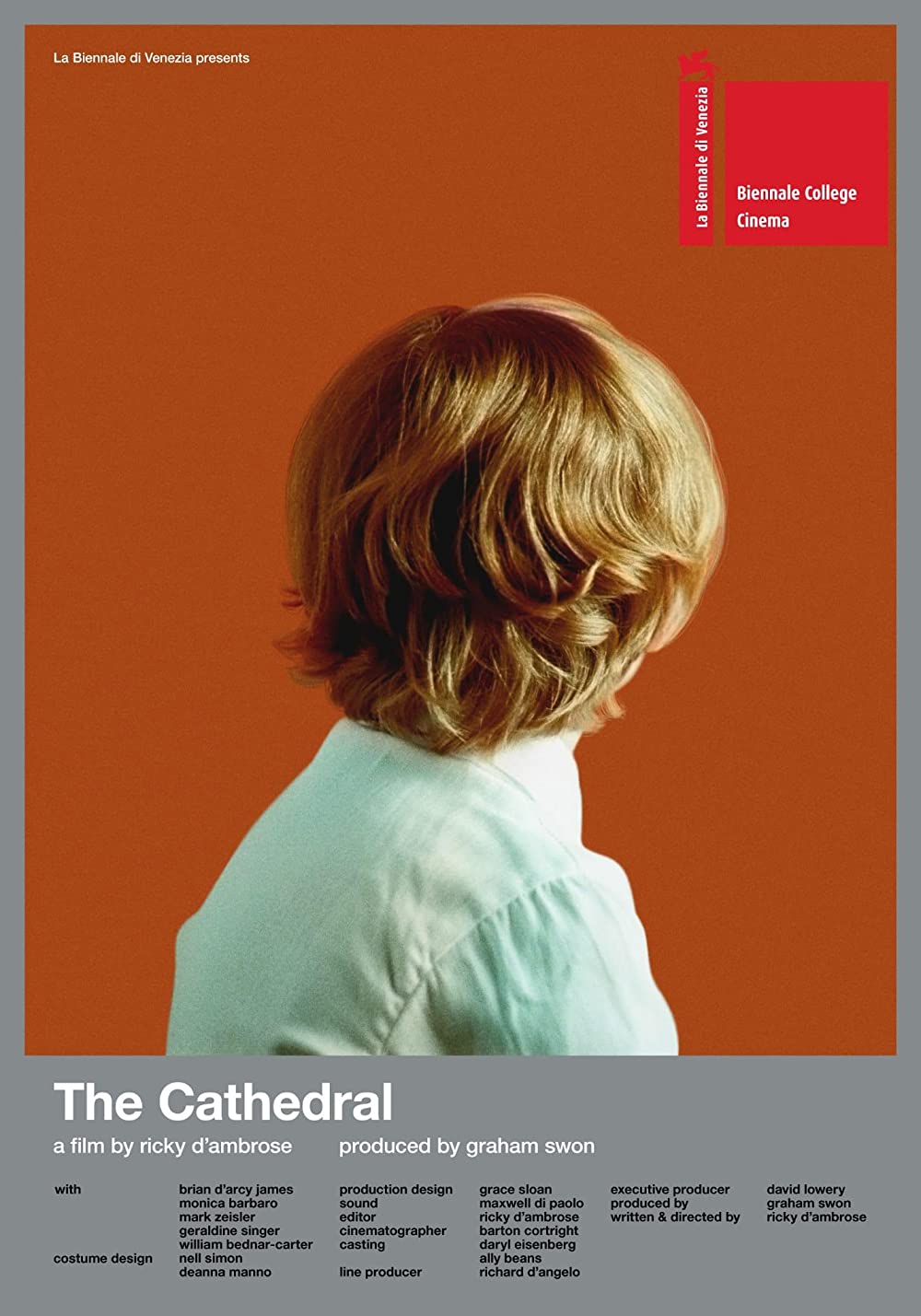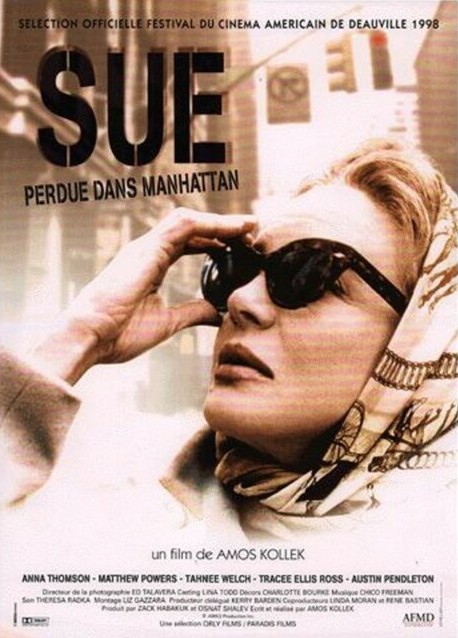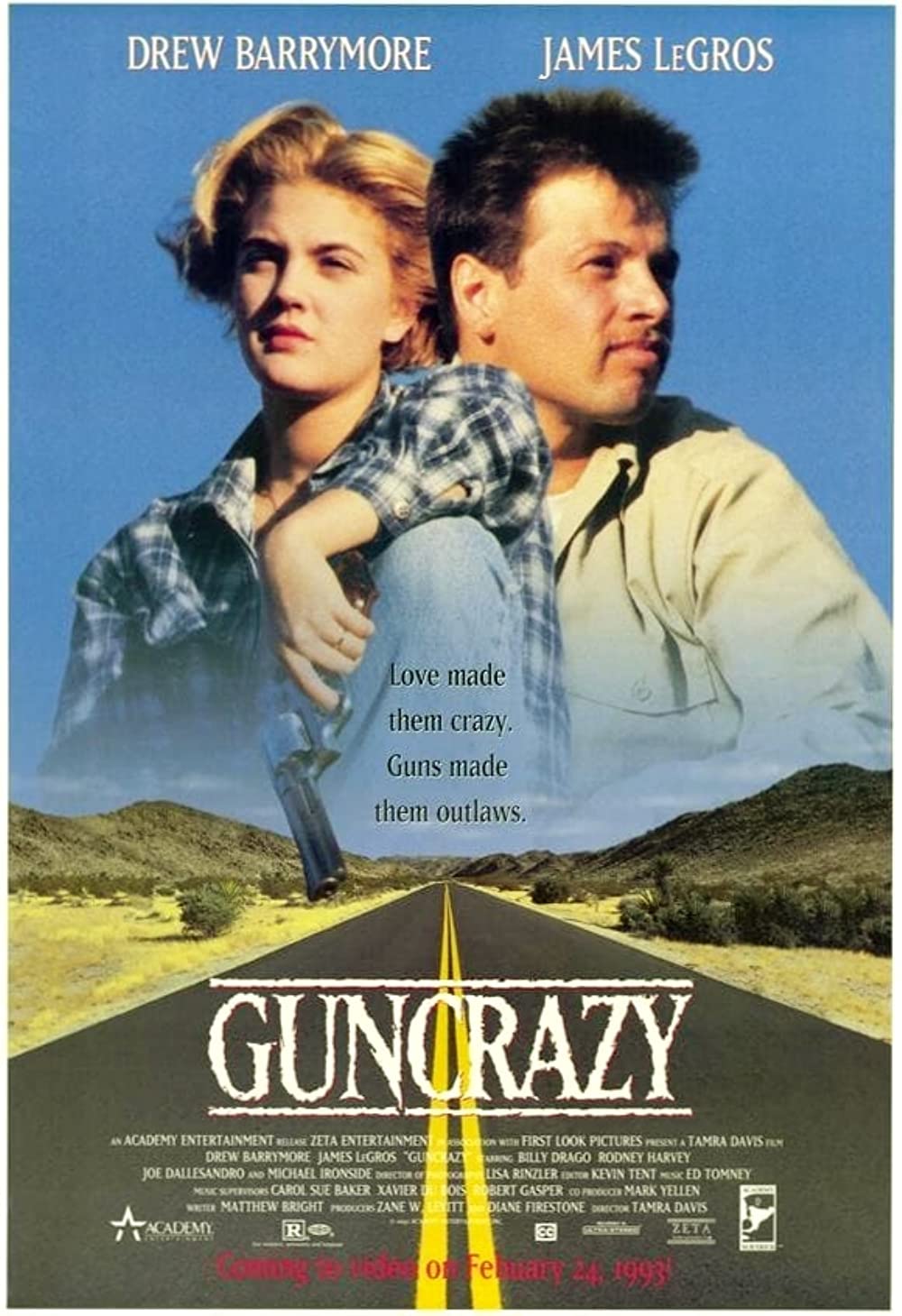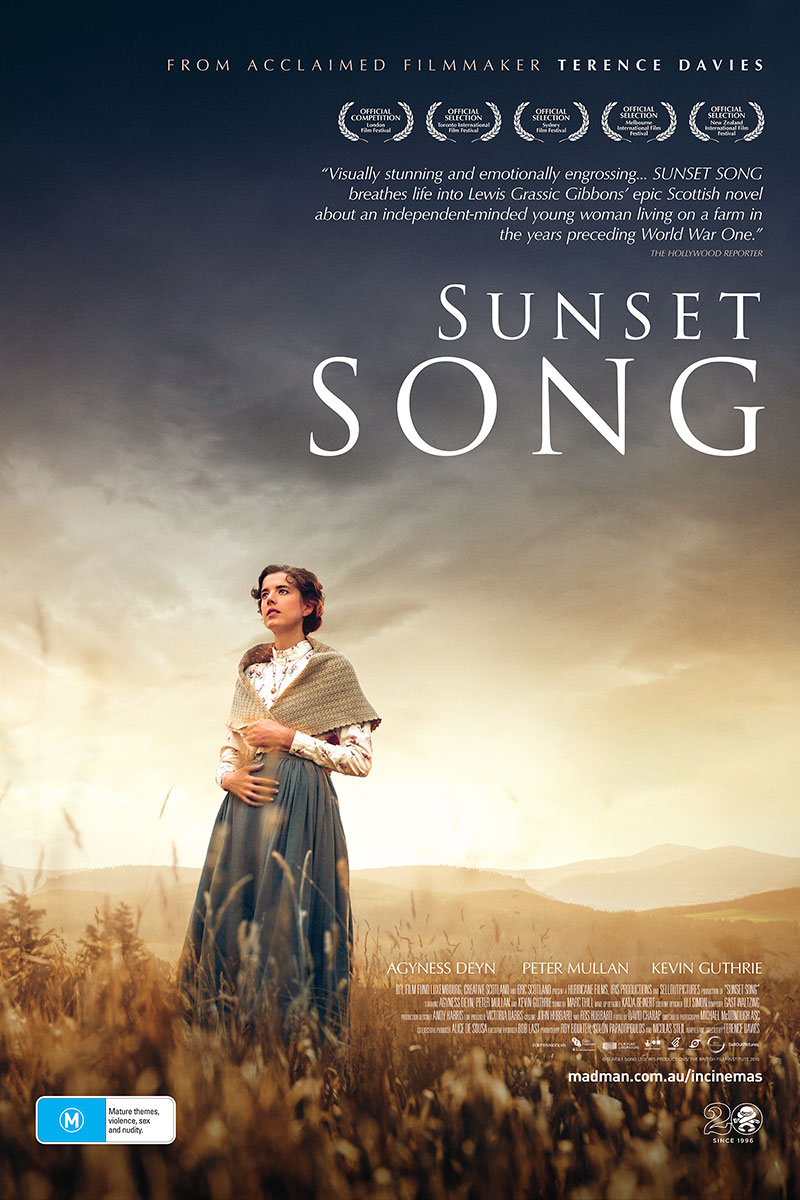I Wake Up Streaming | March 2023
Movies

In this edition of “I Wake Up Streaming,” novelist William Boyle rounds up his top streaming picks for the month of March. The column’s name is a play on the 1941 film I Wake Up Screaming, starring Betty Grable, Victor Mature, and Carole Landis. While the film’s title hits a pleasing note of terror and despair, changing that one letter speaks to the joy of discovering new films and rediscovering old favorites, as well as the panic that comes with being overwhelmed by options.
The Cathedral (MUBI)
 I’m ashamed to say I hadn’t heard about Ricky D’Ambrose’s The Cathedral (released in the U.S. at the Sundance Film Festival last year) until its recent win at the Independent Spirit Awards. It took home the John Cassavetes Award, given to a feature film made with a budget under a million dollars. The film was funded by a grant of a hundred and fifty thousand euros from the Venice Biennale’s College Cinema program. It’s a semi-autobiographical coming-of-age drama that tracks a Long Island boy named Jesse Damrosch and his parents and extended family from the year he’s born, 1987, to the mid-2000s. Combining live-action drama, voice-over narration, archival clips, and fake documents, D’Ambrose tells not only the story of this character and the people around him but also gives a compelling shorthand history of the era. I found watching the film to be a very emotional experience. On paper, it doesn’t sound that far removed from Richard Linklater’s Boyhood, but it’s totally unique. There is way more economy in The Cathedral. D’Ambrose tells the story through details. The fact that it’s a New York story also had a significant impact on me. Growing up in Brooklyn, I often—almost every weekend, it seemed—was out on Long Island visiting my stepdad’s parents and his brother and his children from his first marriage. I’m about nine years older than D’Ambrose but our touchstones—historical and otherwise—are essentially the same. The way he films houses and apartments and light left me breathless. Watching The Cathedral—even if, at times, I lost track of the vast array of side characters mentioned in voiceover—I felt a deep connection to it. I remembered rooms I hadn’t thought about in years. Smells. Noises. I remembered what it was to be in those strange places, so far away from home and yet so close, to feel lost and small and untethered. I thought about the people who surrounded me, many of them gone now. I thought about the types of events Jesse cycles through here: weddings, Christmases, birthdays, graduations, funerals. I remembered being sprawled in the backseat of my mom and stepdad’s car, listening to my Walkman. I remembered so many hopes and fears, secrets and lies and broken relationships. The Cathedral sent me deep inside myself in the best way. I should also say that the ’80s and ’90s period details are perfect, never overdone as they so often are in many movies now that are attempting to glom onto some retro vibe. Hands and coffee cups and tablecloths tell more of a story than exaggerated and extravagant set and costume design. And the voices. It’s different, ultimately, but the only films I can really think to compare it to are Terence Davies’s masterpieces Distant Voices, Still Lives and The Long Day Closes. It’s full of stunning images that feel like William Eggleston photos. A moving document of life in the ’80s, ’90s, and ’00s.
I’m ashamed to say I hadn’t heard about Ricky D’Ambrose’s The Cathedral (released in the U.S. at the Sundance Film Festival last year) until its recent win at the Independent Spirit Awards. It took home the John Cassavetes Award, given to a feature film made with a budget under a million dollars. The film was funded by a grant of a hundred and fifty thousand euros from the Venice Biennale’s College Cinema program. It’s a semi-autobiographical coming-of-age drama that tracks a Long Island boy named Jesse Damrosch and his parents and extended family from the year he’s born, 1987, to the mid-2000s. Combining live-action drama, voice-over narration, archival clips, and fake documents, D’Ambrose tells not only the story of this character and the people around him but also gives a compelling shorthand history of the era. I found watching the film to be a very emotional experience. On paper, it doesn’t sound that far removed from Richard Linklater’s Boyhood, but it’s totally unique. There is way more economy in The Cathedral. D’Ambrose tells the story through details. The fact that it’s a New York story also had a significant impact on me. Growing up in Brooklyn, I often—almost every weekend, it seemed—was out on Long Island visiting my stepdad’s parents and his brother and his children from his first marriage. I’m about nine years older than D’Ambrose but our touchstones—historical and otherwise—are essentially the same. The way he films houses and apartments and light left me breathless. Watching The Cathedral—even if, at times, I lost track of the vast array of side characters mentioned in voiceover—I felt a deep connection to it. I remembered rooms I hadn’t thought about in years. Smells. Noises. I remembered what it was to be in those strange places, so far away from home and yet so close, to feel lost and small and untethered. I thought about the people who surrounded me, many of them gone now. I thought about the types of events Jesse cycles through here: weddings, Christmases, birthdays, graduations, funerals. I remembered being sprawled in the backseat of my mom and stepdad’s car, listening to my Walkman. I remembered so many hopes and fears, secrets and lies and broken relationships. The Cathedral sent me deep inside myself in the best way. I should also say that the ’80s and ’90s period details are perfect, never overdone as they so often are in many movies now that are attempting to glom onto some retro vibe. Hands and coffee cups and tablecloths tell more of a story than exaggerated and extravagant set and costume design. And the voices. It’s different, ultimately, but the only films I can really think to compare it to are Terence Davies’s masterpieces Distant Voices, Still Lives and The Long Day Closes. It’s full of stunning images that feel like William Eggleston photos. A moving document of life in the ’80s, ’90s, and ’00s.
Sue (Tubi)

I was rereading Nathalie Léger’s Suite for Barbara Loden earlier this month and saw Amos Kollek’s 1997 film Sue mentioned. Léger calls it Sue Lost in Manhattan, the title it was released under in France, where it was very well received. It didn’t, as far as I know, get a release in the U.S., going straight to video. I remember being interested in checking it out last time I read the book, and I was happy to find it on Tubi now. It’s definitely cut from the same cloth as Loden’s masterful Wanda. A revelatory first-time watch for me. My friend Megan Abbott called it “a rare [and] devastating thing: a female descent story […] told with tenderness and psychological acuity.” Anna Thomson plays Sue—a woman adrift in Manhattan. Having lost her job and on the verge of being kicked out of her apartment, she floats from diners and dive bars to park benches and empty sexual encounters. Some of the people she meets are living dangerously on the edge, while others are kind and want only to help her. I’ve been fascinated by Thomson since I first saw her in Unforgiven and True Romance as a kid, and her performance is so touching here. I can’t imagine anyone else in the role. She’s got this haunted, gentle quality that really makes a viewer feel for her. I was put in mind of one of my favorite characters in all of fiction, Allison Johnson in Willy Vlautin’s Northline. Like Allison, Sue is a melancholy saint of a character, and I won’t soon forget her. The film was shot on location in ‘90s New York City; it’s grimy and grungy and infused with a sort of junkie’s sadness. Some scenes look like Edward Hopper paintings. Heartbreaking. Beautiful.
Guncrazy (Tubi)

I mentioned in my last column that I’ve been on a Drew Barrymore kick this year. I picked up Tamra Davis’s Guncrazy when it was released on Blu-ray a couple of years back and finally got around to checking it out—it’s also on Tubi, thankfully. I hadn’t seen the movie in probably thirty years. It’s better than I remembered. It’s inspired by Joseph L. Lewis’s brilliant 1950 film Gun Crazy, but it’s not a remake. There are echoes of Lewis’s classic, as well as Badlands, Bonnie & Clyde, and other lovers-on-the-run movies, but it feels like its own strange thing. Drew is wonderful. Her early ’90s movies have generally aged well, especially this and Poison Ivy. Desperation and rawness fuel her performance as Anita, a teenager in California whose mother has abandoned her with her abusive boyfriend, Rooney. At school, she’s taken advantage of by boys and treated like shit. A class pen-pal project connects her with a prisoner named Howard (‘90s stalwart James Le Gros). They fall for each other through the mail. Anita finally strikes back against Rooney. When Howard is let out on early parole after saving the life of a prison guard, Anita gets him a job and a place to live. Anita’s best pal, Joy (Ione Skye), is the daughter of Howard’s parole officer, Mr. Kincaid (Michael Ironside). Everything snowballs quickly into violence because of Kincaid’s distrust of Howard. Soon enough, Anita and Howard are on the lam. Le Gros has an empathetic quality that makes him perfect for a role like Howard. There are nice supporting turns from Skye, Ironside, Jeremy Davies, Joe Dallesandro, and Billy Drago. Tamra Davis has a compelling and strange filmography—she followed this with CB4 and Billy Madison (as well as a host of iconic music videos for Sonic Youth, Beastie Boys, The Lemonheads, Luscious Jackson, and Veruca Salt).
Sunset Song (Prime Video)

In 2022, I went deep on the films of Terence Davies. Before that, I’d only ever seen The Long Day Closes and The House of Mirth, both of which I’d watched in my late teens and probably wasn’t quite ready for. In a relatively short span of time toward the end of last year—maybe two weeks—I watched his entire filmography, prompted by a revelatory viewing of The Neon Bible, which I only watched because it was expiring from the Criterion Channel and I was trying to fill in a gap in the filmography of one of my favorite actors, Gena Rowlands. That one and everything else blew me away. The stunning early shorts. Distant Voices, Still Lives. The Long Day Closes and The House of Mirth, both of which I hadn’t amply appreciated in the ’90s. His Of Time and the City documentary. And the newer films: The Deep Blue Sea, Sunset Song, A Quiet Passion, and Benediction. Davies very quickly went from being a name I recognized to one of my absolute favorite filmmakers. Of his late-career films, Sunset Song is probably the least well known and least well regarded. I haven’t read the Lewis Grassic Gibbon novel on which it’s based, but I picked it up (as well the other two books in the Scots Quair trilogy) and need to dig in. I love the emphasis Davies puts on the writer, placing Gibbon’s name ahead of the title and giving himself an “adapted and directed by” credit at the end, as it should always be. Agyness Deyn is a revelation as Chris, a farmgirl whose coming-of-age in early 1900s Scotland is documented. The film is tender even in its darkest and most brutal moments, and it bends more and more toward joy and numinousness as the story evolves, at least before the First World War changes everything. There are so many stunning details. Every frame is truly a painting. As always with Davies, the film is full of songs and singing. The whole thing feels like a perfect folk ballad. A meditation on time and love, death and birth, war and marriage, pain and the spirit of place. It sucks that Kevin Guthrie, the actor who plays Chris’s husband, casts a black cloud over the proceedings (a couple of years after Sunset Song’s release, he was arrested and imprisoned for sexual assault). In some ways, I found myself struggling with the last third of the film—Davies leaves so much boiling under the surface. The transition from dark to light and then back to dark is jarring. I think reading the book and doing a rewatch will illuminate things. Still, it’s an evocative and gorgeous film.
William Boyle is the author of the novels Gravesend, The Lonely Witness, A Friend Is a Gift You Give Yourself, City of Margins, and Shoot the Moonlight Out, all available from Pegasus Crime. His novella Everything Is Broken was published in Southwest Review Volume 104, numbers 1–4. His website is williammichaelboyle.com.
Illustration: Jess Rotter
More Movies


